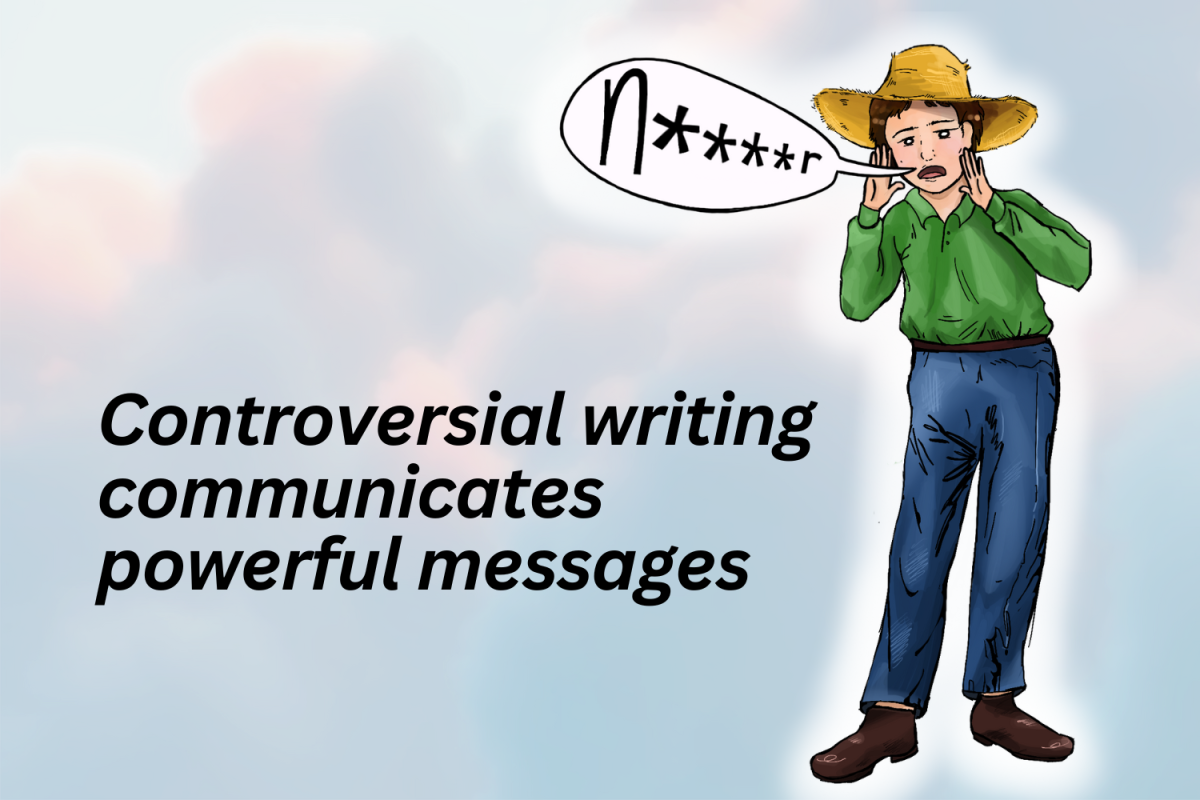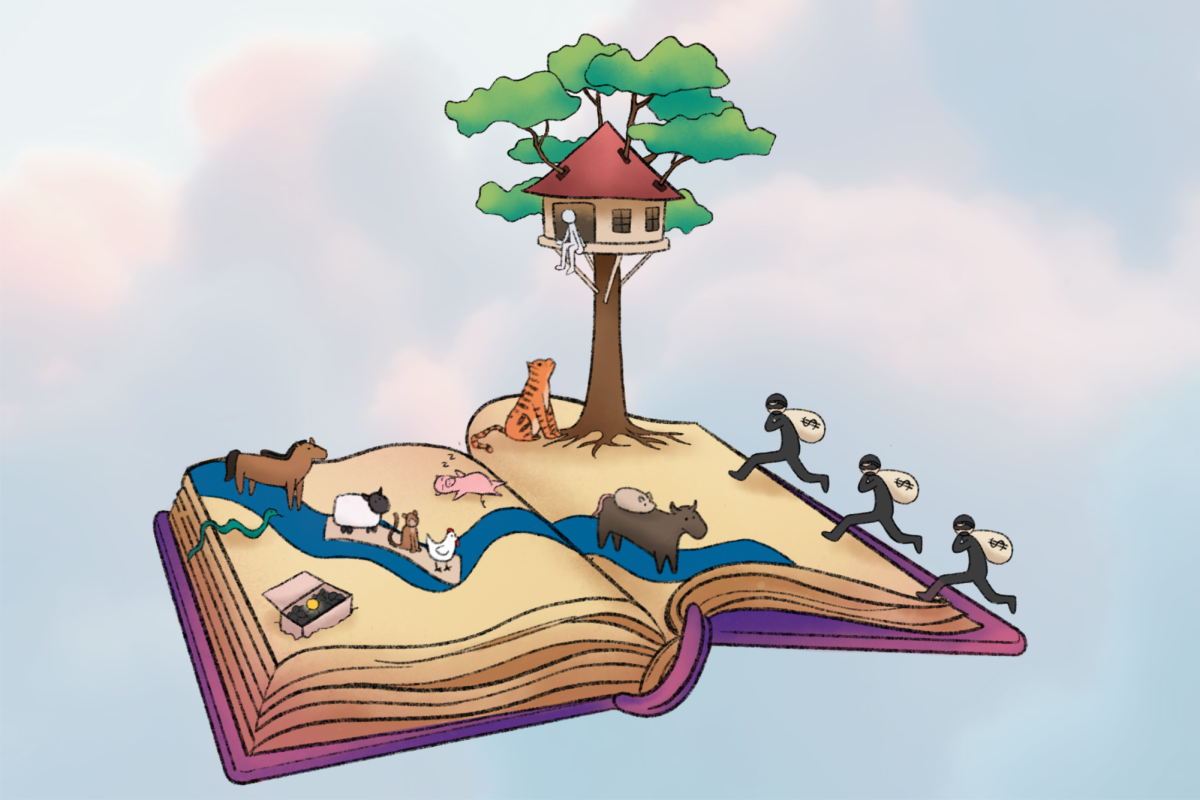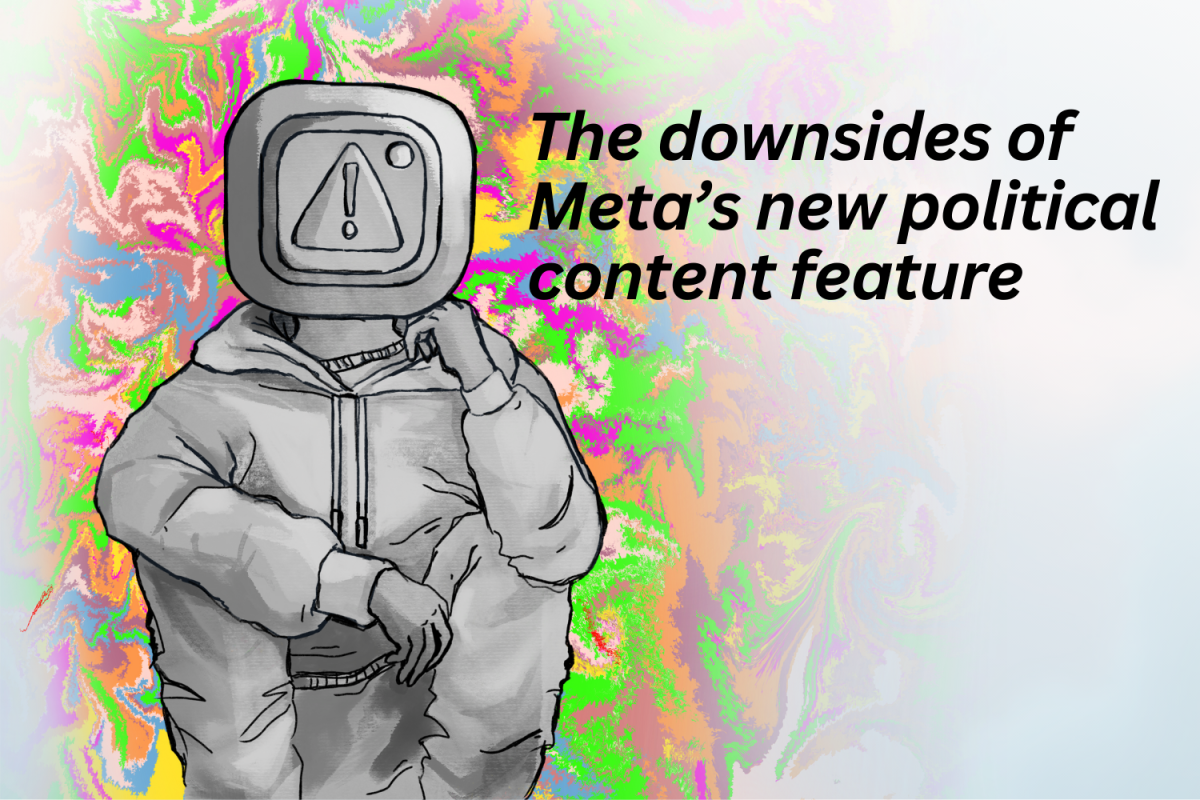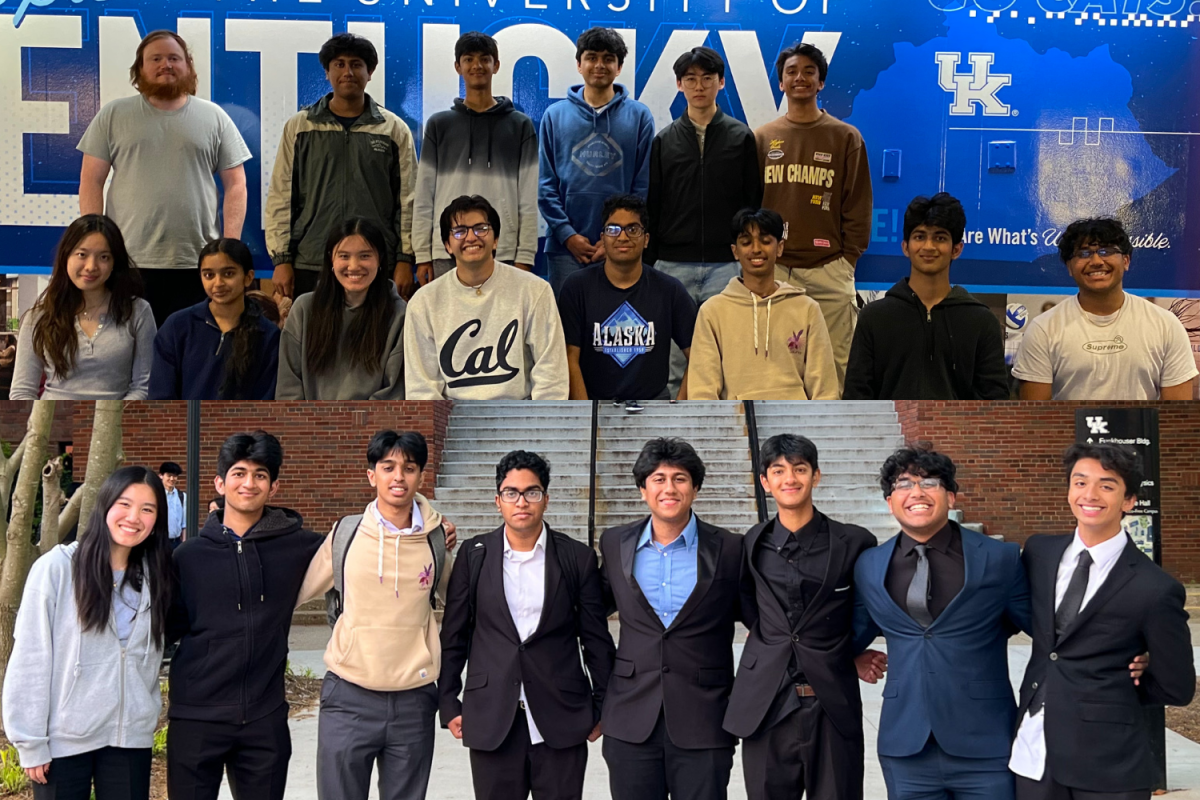Lynbrook Drama’s spring play, “The Laramie Project,” stood out and prompted debate due to its mature subject matter. The play is based on the story of Matthew Shepard, a gay man who was beaten and killed in what was considered a hate-crime in 1988, committed by a homophobic gang in Laramie, Wyoming. The play depicts violent and hateful language, including multiple instances of the homophobic f-slur. Due to the violent actions depicted in the play, the use of slurs could be seen by some as too extreme for certain audiences. Despite these concerns, the use of derogatory language in this play and other literature curricula only elevates the underlying themes and messages and allows readers to better experience the past, providing accurate portrayals of past experiences and struggles.
Including words like slurs ensures that literature stays true to the story’s narrative. In the case of the play specifically, “The Laramie Project” describes real-life experiences of the time period. Simply filtering out the slurs and replacing them with politically correct terms in the current day would make these experiences less meaningful than a more powerful and accurate portrayal.
“Although the use of slurs might be offensive to some audiences, it brought the interviews that were conducted in Laramie to life,” said sophomore Alden James, a cast member on “The Laramie Project.” “I believe it was necessary to provide that atmosphere for the entire audience.”
Over the past decade, controversy over the inclusion of racial slurs and derogatory language in literature has, in some cases, resulted in book bans and the overhauling of English curriculums. For instance, the novel “Adventures of Huckleberry Finn” by Mark Twain is well known for its dedication to the historical period of the 1830s, characterized by a bitter national debate over the morality of slavery. To paint a more accurate picture of this divisive landscape, the book includes 219 instances of racial slurs. Because of this, many schools have banned the book from their English curricula. Though “Adventures of Huckleberry Finn” is a work of fiction, Twain intended to cohesively convey the slurs and stereotypes of African Americans that were prominent during his time. These slurs and stereotypes are meant to portray the times of the past realistically and are used as part of the author’s overarching efforts to satirize and reflect on racism.
“In ‘Adventures of Huckleberry Finn’, there is a Black character named Jim who is often referred to in racial slurs and stereotypes,” junior and AP Language and Composition student Daniel Wan said. “However, Jim exhibits traits that go against those slurs and stereotypes, showing Twain’s intention to weaken the merits of those slurs and stereotypes.”
Twain was a progressive thinker for his time who sympathized with political and social equality for African Americans. His intention to use racial slurs in his novel served to reveal the moral contradiction that Southern slave society utilized to maintain slavery. While reading texts like “Adventures of Huckleberry Finn,” it is not necessary for students to read the slurs aloud to learn from them, as FUHSD policy states that those words should not be read out loud or reproduced in student writing. Due to traumatic experiences and memories, some audiences find the use of slurs discomforting and insulting. To prevent inappropriate use of these slurs inside and outside of the classroom, teachers commonly begin with a discussion on guidelines for how to approach slurs displayed in the literature or media used in the class before teaching the material.
The choice to reproduce slurs in media, literature, and theater, while controversial, elevates literature by providing meaningful context and sparking conversations around the harm that these slurs have created.
“I have faced racism my whole life, and if there was a book that contained racial slurs of my own people, I’m all for it because it shows how much we are suffering,” AP Language and Composition teacher Andrew Seike said. “A good author will find ways to articulate that these slurs are wrong, but simply censoring the slurs is the equivalent of disregarding the bad things that have happened.”













































































Julie MeadorKocal • May 1, 2024 at 7:48 am
Wondering if this person who this knows that both perpetrators have said numerous times that this had nothing to do with being gay?? That they didn’t even know Matthew was gay??